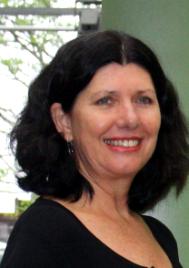13% of Queensland women report physical or sexual abuse
Published on 07 February, 2012
New research reveals that 13% of Queensland women suffered physical abuse or sexual abuse, and 31% were subjected to various forms of non-physical abuse, by their current male partner.
These figures are based on recent research by the Queensland Centre for Domestic and Family Violence Research (CDFVR), based at CQUniversity Mackay Campus.
The CDFVR survey involved telephone interviews with 1854 women across the state. The findings are broadly consistent with the results of a similar national survey conducted in 2004 by the Australian Institute of Criminology and a previous survey conducted by CDFVR in the Bowen Basin and Mackay region of Central Queensland.
CDFVR Director and project leader Heather Nancarrow said the research also highlighted the significant mental health impacts of all forms of intimate partner abuse and the reluctance of women to seek help, or to end an abusive relationship.
"This is the first such study conducted for the whole of Queensland and it provides a benchmark for measuring the impact in Queensland of the Council of Australian Government's (COAG) 12 -year National Plan to Reduce Violence against Women and their Children," Ms Nancarrow says.
Under the National Plan, all states and territories and the commonwealth are to develop and implement four consecutive three-year action plans to significantly reduce violence against women, specifically domestic violence and sexual assault, by 2022.
"Through advocacy from women inside and outside government, Queensland has made very considerable policy, legislative and service delivery advances in the last three decades, and in the last three years has implemented a number of new innovations," Ms Nancarrow says.
"Following a comprehensive review of Queensland's 20-year old Domestic and Family Violence Protection Act 1989, a Bill for a new Act was introduced to Parliament last September and is set down for parliamentary debate on February 14."
Ms Nancarrow, who was Deputy Chair of the National Council that produced the blueprint for the National Plan to Reduce Violence against Women and their Children, says that the Queensland Government has shown strong leadership on domestic violence prevention but more needs to be done in regard to its response to sexual assault.
She has been meeting with members of the Queensland Sexual Assault Network and plans to take their concerns, and a proposal for enhancing research to inform policy and practice in this area, to the Government and the Opposition in the lead-up to the state election.


